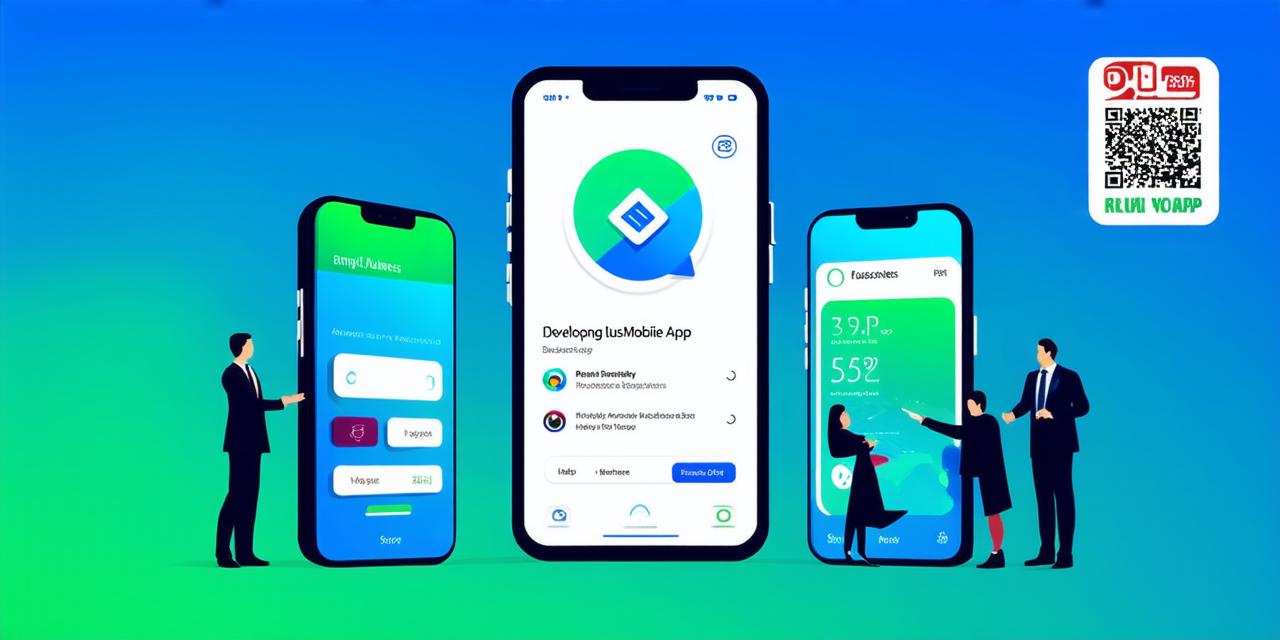Should we develop a mobile app?
Developing a mobile app can be an exciting prospect for any business looking to expand their reach and engage with their customers in new ways. However, it’s important to carefully consider the pros and cons before making a decision. In this comprehensive guide, we will explore the various aspects of developing a mobile app and provide you with real-life examples to help you make an informed decision.
Pros of Developing a Mobile App:
-
Increased Visibility: With millions of people using smartphones every day, developing a mobile app is a great way to increase your visibility and reach a wider audience. By creating an app that is available on both iOS and Android platforms, you can tap into the largest possible market.
-
Improved Engagement: Mobile apps allow for more personalized and interactive experiences, which can help to build stronger relationships with your customers. With features like push notifications, in-app purchases, and real-time updates, you can keep your customers engaged and coming back for more.
-
Enhanced Branding: A mobile app is a powerful way to strengthen your brand identity and establish yourself as an authority in your industry. By creating a visually stunning app that reflects your company’s values and mission, you can create a lasting impression on your customers and differentiate yourself from the competition.
-
Increased Revenue: Mobile apps are a great way to generate additional revenue for your business. With features like in-app purchases, subscriptions, and advertising, you can monetize your app in multiple ways. For example, you could offer premium content or features that require payment, or display ads within your app to generate revenue through advertising.

Cons of Developing a Mobile App:
-
Cost: Developing a mobile app can be expensive. The cost depends on various factors such as the complexity of the app, the platform it will run on, and the development team’s expertise. You may need to invest thousands or even millions of dollars in developing an app that meets your business needs.
-
Time-Consuming: Developing a mobile app is a time-consuming process. It can take several months or even years to create an app that is user-friendly, visually appealing, and technically sound.
-
Maintenance Costs: Once your app is launched, you will need to maintain it regularly to keep it up-to-date and ensure it continues to function properly. This includes fixing bugs, adding new features, and keeping the app compliant with ever-changing regulations. This ongoing maintenance can be costly and time-consuming, and it’s important to factor these costs into your development budget.
-
Competition: The mobile app market is highly competitive, with millions of apps available on both iOS and Android platforms. You will need to differentiate yourself from the competition by offering a unique and valuable experience to your customers. This may require careful planning and research to identify gaps in the market and develop an app that stands out from the crowd.
Real-Life Examples:
-
Uber: Uber’s mobile app revolutionized the transportation industry by providing a convenient and affordable way for people to get around. With features like real-time tracking, surge pricing, and in-app payments, Uber has become one of the most successful and recognizable mobile apps in the world.
-
Spotify: Spotify’s mobile app is a great example of how a music streaming service can be used to engage with customers and generate revenue. With features like personalized playlists, live radio, and in-app purchases, Spotify has become one of the most popular and profitable music streaming services in the world.
-
Starbucks: Starbucks’ mobile app is a great example of how a retail business can use a mobile app to improve customer engagement and generate revenue. With features like mobile ordering, loyalty rewards, and in-app payments, Starbucks has become one of the most successful and recognizable mobile apps in the retail industry.
-
Instagram: Instagram’s mobile app is a great example of how a social media platform can be used to engage with customers and generate revenue. With features like sponsored posts, influencer marketing, and in-app purchases, Instagram has become one of the most popular and profitable social media platforms in the world.
Tips for Developing a Mobile App:
-
Plan carefully: Before starting your development process, it’s important to plan carefully and clearly define your goals and objectives. This will help you identify the key features and functions that your app needs to have and ensure that your development timeline and budget are realistic.
-
Conduct market research: To differentiate yourself from the competition, it’s important to conduct market research to identify gaps in the market and develop an app that stands out from the crowd. This may involve surveying potential customers, analyzing competitor offerings, and identifying trends and patterns in the industry.
-
Focus on user experience: User experience is critical for the success of any mobile app. Your app should be easy to use, visually appealing, and provide value to your customers. This requires careful planning and design, as well as ongoing testing and optimization to ensure that your app meets the needs and expectations of your users.
-
Invest in ongoing maintenance: Once your app is launched, it’s important to invest in ongoing maintenance and support to keep it up-to-date and ensure that it continues to function properly. This includes fixing bugs, adding new features, and keeping the app compliant with ever-changing regulations.
Summary:
Developing a mobile app can be a great way for businesses to increase visibility, improve engagement, enhance branding, and generate additional revenue. However, it’s important to carefully consider the pros and cons before making
